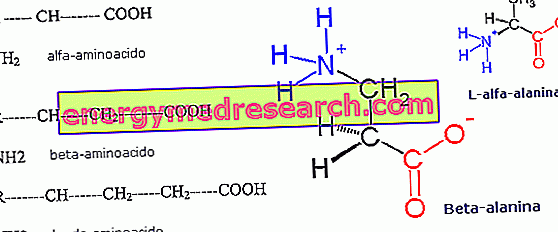
What is Imatinib medac - imatinib used for?
Imatinib medac is an anticancer medicine that contains the active substance imatinib . It is used for the treatment of:
- pediatric patients with chronic myeloid leukemia (CML), a cancer of white blood cells characterized by the uncontrolled increase of granulocytes (a type of white blood cell). Imatinib medac is used in patients with "Philadelphia positive chromosome" (Ph +). This means that some of their genes have reorganized to form a special chromosome, called the "Philadelphia chromosome". Imatinib medac is used in children with newly diagnosed Ph + CML who are not eligible for bone marrow transplantation. Imatinib medac is also indicated for the treatment of children in the "chronic phase" of the disease, after the failure of therapy with interferon alpha (another anticancer medicine) and in the more advanced stages of the disease ("accelerated phase" and "blast crisis") ;
- adults with Ph + CML in blast crisis;
- adults with acute lymphoblastic leukemia (ALL) Ph +, a type of cancer in which the lymphocytes (another type of white blood cells) multiply too quickly. Imatinib medac is used in combination with other anticancer medicines in adults with newly diagnosed LAA Ph +. It is also used as a monotherapy (alone) for the treatment of Ph + ALL adults if the disease recurs or if the patient does not respond to treatment with other drugs;
- adults with myelodysplastic or myeloproliferative syndromes (MDS / MPD), a group of syndromes in which the body produces large amounts of abnormal blood cells. Imatinib medac is used in the treatment of adult patients with MDS / MPD who experience rearrangements of the platelet-derived growth factor receptor gene (PDGFR);
- adults with advanced hypereosinophilic syndrome (HES) or chronic eosinophilic leukemia (CEL), diseases in which eosinophils (another type of white blood cell) begin to grow out of control. Imatinib medac is used to treat adults with HES or LEC in which a specific reorganization of two genes is observed, called FIP1L1 and PDGFRα;
- adults with dermatofibrosarcoma protuberans (DFSP), a type of tumor (sarcoma) in which the cells of the under-skin tissue divide uncontrollably. Imatinib medac is used to treat adults with DFSP who cannot be surgically removed and adults who are not eligible for surgery when the cancer has come back after treatment or has spread to other parts of the body. Imatinib medac is a "generic medicine". This means that Imatinib medac is similar to a 'reference medicine' already authorized in the European Union (EU) called Glivec. For more information on generic medicines, see the questions and answers by clicking here.
How is Imatinib medac - imatinib used?
Imatinib medac is available as capsules (100 mg and 400 mg). The medicine can only be obtained with a prescription and treatment should be started by a doctor experienced in treating patients with blood cancer or solid tumors. Imatinib medac is taken orally during a meal, with a large glass of water to reduce the risk of stomach and bowel irritation. The dose depends on the disease being treated, the age and condition of the patient, and the response to treatment, but should not exceed 800 mg a day. For more information, see the package leaflet.
How does Imatinib medac - imatinib work?
The active substance in Imatinib medac, imatinib, is a protein tyrosine kinase inhibitor. That is, it blocks some specific enzymes known as tyrosine kinases. These enzymes can be found in some receptors on the surface of cancer cells, including the receptors involved in stimulating cells to divide uncontrollably. By blocking these receptors, Imatinib medac helps to control cell division.
How has Imatinib medac - imatinib been studied?
Because Imatinib medac is a generic medicine, studies in patients have been limited to checking that it is bioequivalent to the reference medicine, Glivec. Two medicines are bioequivalent when they produce the same levels of active ingredient in the body.
What are the benefits and risks of Imatinib medac - imatinib?
Because Imatinib medac is a generic medicine and is bioequivalent to the reference medicine, its benefits and risks are considered to be the same as those of the reference medicine.
Why has Imatinib medac - imatinib been approved?
The Agency's Committee for Medicinal Products for Human Use (CHMP) concluded that, in accordance with EU requirements, Imatinib medac has been shown to have comparable quality and to be bioequivalent to Glivec. Therefore, the CHMP considered that, as in the case of Glivec, the benefits outweigh the identified risks and recommended to approve the use of Imatinib medac in the EU.
What measures are being taken to ensure the safe and effective use of Imatinib medac - imatinib?
A risk management plan has been developed to ensure that Imatinib medac is used as safely as possible. Based on this plan, safety information has been included in the summary of product characteristics and the package leaflet for Imatinib medac, including the appropriate precautions to be followed by healthcare professionals and patients.
Other information on Imatinib medac - imatinib
On 25 September 2013, the European Commission issued a marketing authorization for Imatinib medac, valid throughout the European Union. For the full EPAR version of Imatinib medac, consult the Agency's website: ema.Europa.eu/Find medicine / Human medicines / European public assessment reports. For more information about treatment with Imatinib medac, read the package leaflet (also part of the EPAR) or contact your doctor or pharmacist. The full EPAR for the reference medicine can also be found on the Agency's website. Last update of this summary: 09-2013.



